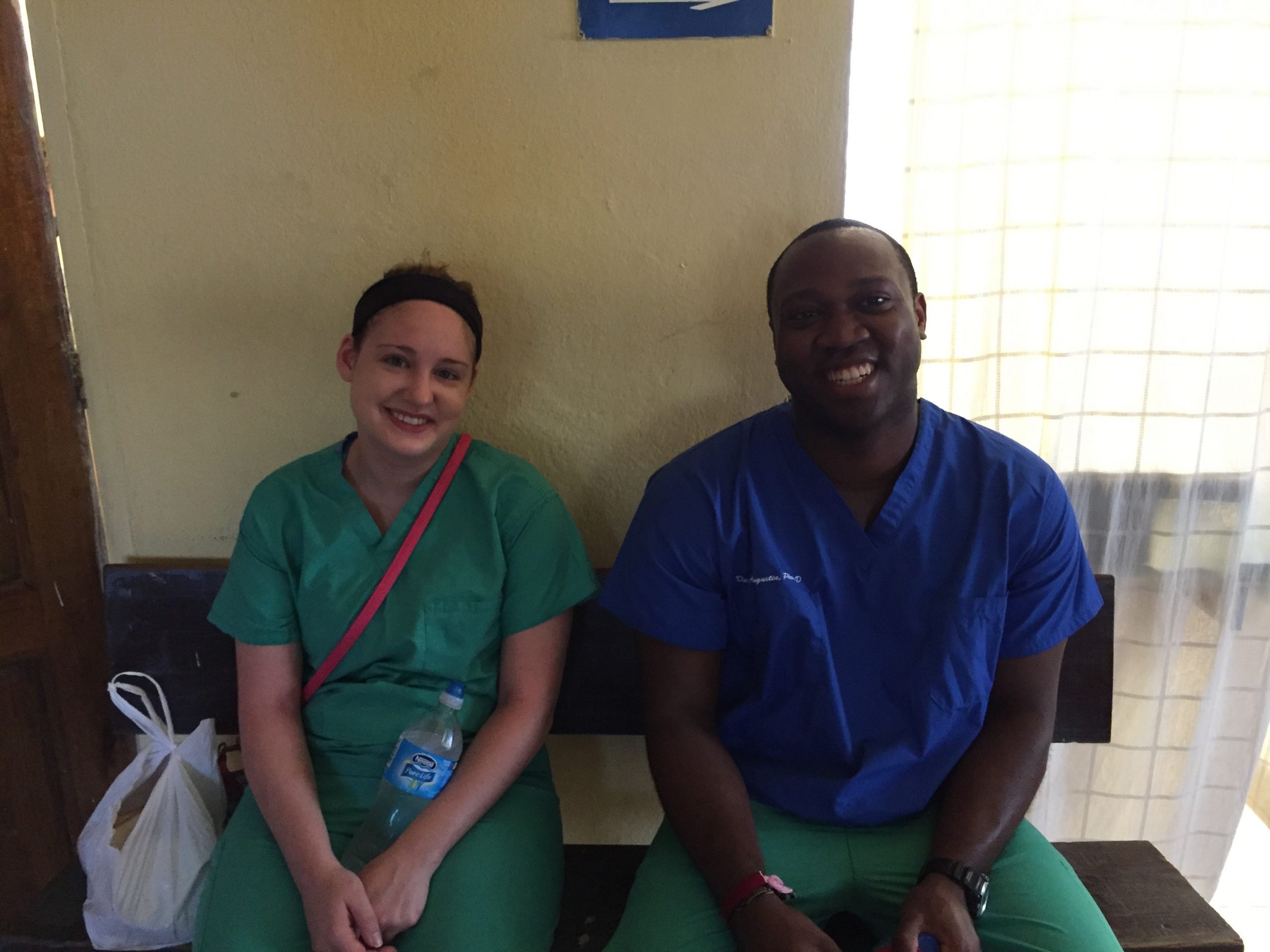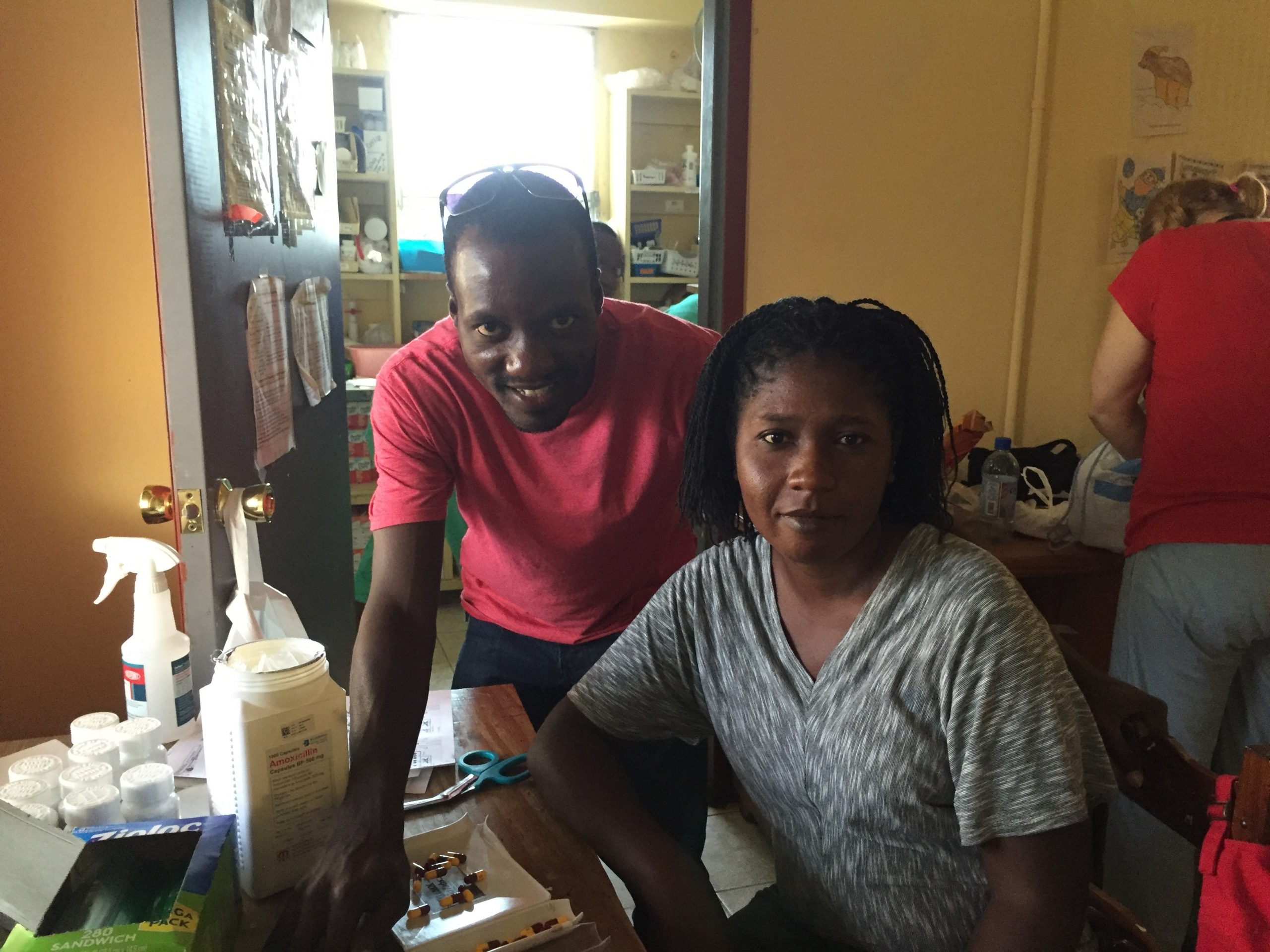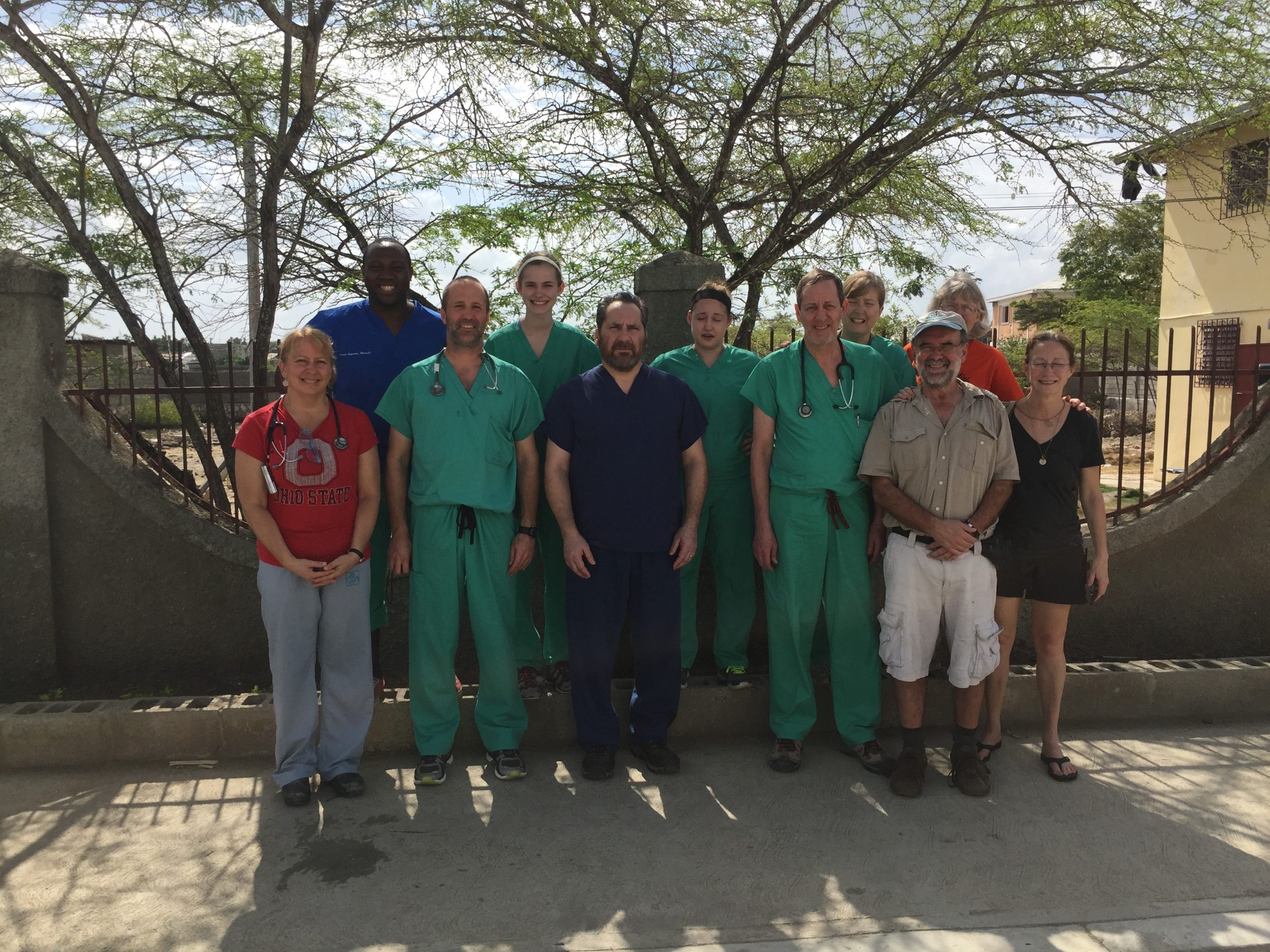Reflections from Haiti-2016
PLOS Pathogens Editor-in-Chief Grant McFadden reflects on his recent trip to Haiti as part of a volunteer medical team. On his 3rd journey to the underprivileged country, Dr. McFadden transmits a positive message, noting a decrease in cholera cases and a hopeful optimism that Haiti will overcome its barriers and rise again.

Image Credit: Grant McFadden
Upon returning in February from my third trip as a volunteer in a free medical clinic in Fort Liberte on the northern shore of Haiti, I found the need to once again pause and ponder yet another remarkable experience. After my first trip in 2012, I blogged about my impressions and tried to provide some perspective of what it is like to travel from our land of plenty to one that is barely functional as a country. So what, over the past 4 years, has happened in this impoverished country, still recovering from the disastrous earthquake on Jan 12, 2010, the subsequent cholera outbreak, and the ever-pervasive chronic poverty?
Unlike our previous trips, we took advantage of new airline routes into Haiti and flew directly from Miami to Cap Hatien as part of a medical team that is based out of Columbus, Ohio. Although desperately poor, Cap Hatien is home to over a million, and is a truly beautiful location on the Caribbean coast.
On previous trips, the Santiago airport in the Dominican Republic was our entry point into the Hispanola island that is shared with Haiti, but on this trip we landed at the new Cap Hatien International airport. The first thing I noticed upon landing in the Haitian airport was that the Hatian border guards and custom agents were all friendly and efficient. Our positive entry experience seemed like a good omen.
We had little time to sight-see in Cap Hatien and were quickly trucked over to Fort Liberte in order to prep the medical supplies needed for the clinic opening. As before, we stayed in the Jerusalem Baptist Church compound close to the medical clinic, which was first established many years ago by Pastor Andre, their founding church leader. It is also close to the site for the church school and their sponsored orphanage. Pastor Andre has spent his life working for the local community, even maintaining some public order in times of revolution, earthquakes and epidemics. He only recently retired, after his wife Madame Justine passed away after a long struggle with diabetes and strokes; both were a core strength for the church and clinic. For this trip, our new host was Pastor Dasnis Pierre, a young and energetic minister who has just stepped into the very large shoes of his predecessor.
The free medical clinic in Fort Liberte serves close to a thousand patients over the week that it is open under our team. All of the familiar clinical cases one sees in a country without public health infrastructure are unfortunately still there: uncontrolled diabetes; advanced heart disease; chronic hypertension; mental issues such as stress and depression; typhoid fever, tuberculosis, scabies; and a multitude of mosquito-born diseases like dengue, malaria, chikungunya and the newly arrived zika virus. We saw no evidence of birth defects associated with zika virus infections during pregnancy, as has been reported in Brazil, but the zika epidemic is still in its early days in Haiti, and I fear for what may be in store. The one positive trend is that there has been a huge reduction in cholera cases, at least in the north of the island, giving reason to hope that additional infectious disease reductions are possible. Still, standing water and scattered garbage is a persistent problem in Haiti, the stagnant water serving like a Club Med for disease-bearing mosquitoes. In my mind, Haiti as a country needs to deal with this problem as a top priority, right alongside providing clean water supplies to the population in general.
My own assigned task in the clinic, as before, was to help the pharmacists fill the drug orders for patients after they were seen by the team doctors, and then ensure that each patient understood the details of their prescriptions. In this, I worked closely with two student pharmacists from Ohio, Rachel Beshem and Dave Augustin.

Image Credit: Grant McFadden
We also received important help from two local Haitians, my Creole interpreter, Frisnel St. Julien, and Jesulene, a volunteer from a district hospital pharmacy.

Image Credit: Grant McFadden
Together, we helped each other cope with the chaos of managing hundreds of prescriptions and making sure that every patient understood exactly what their medicines were for and how to take them. We also gave freelance help for other medical needs that continuously arose throughout the clinic, some of which could be very stressful. My most vivid case was a young baby who had been somehow immersed into boiling water and had extreme burn damage to the lower half of her body. Thanks to the unflinching diligent support from our team, particularly our pediatric nurse practitioner, Lynn Morrison, I think this baby is going to pull through. I also must praise the extraordinary work of the dedicated physicians on the team, such as Dr. Diane Gorgas, an emergency room specialist from Ohio who is also training local Haitian nurses and teams to improve medical care in their own community.

Image Credit: Grant McFadden
My overwhelming memory from this trip is still of the local people, who are uniformly friendly, engaging, positive and possessing hope that transcends their immediate reality. On a visit to the local market during one of our breaks, one of the local food merchants couldn’t wait to get her picture taken with Alex and was proud of her opportunity to work towards a better life.
I cannot say enough about the people, locals and team members alike, who donated their time and life forces to help people who genuinely need it. The members of the medical team all had volunteered for reasons that were as varied as their individual motivations, but I would say that it is a collective selflessness that is their common bond. Bravo, my friends, you make the world a better place.

Image Credit: Alex Lucas
Finally, one image lingers in my mind’s eye. This last picture, taken by Alex during a swim break with Lynn at the local military fort, was shot at dawn on the last morning before we departed. It is of a lone Haitian fisherman out on his tiny boat trying for an early catch before the sun rises. To me, it is both noble and hopeful, and makes me think that Haiti will rise again, perhaps less because of help from outsiders like us, but more because their own people will make it so.
Grant McFadden is an Editor-in-Chief of PLOS Pathogens and a Professor in the Department of Molecular Genetics and Microbiology at the University of Florida. His lab focuses on the strategies that poxviruses have evolved to evade, subvert, suppress and micro-manipulate the various host anti-virus defenses.


Thanks for this great piece. May God bless you in your effort to continue helping Haitians